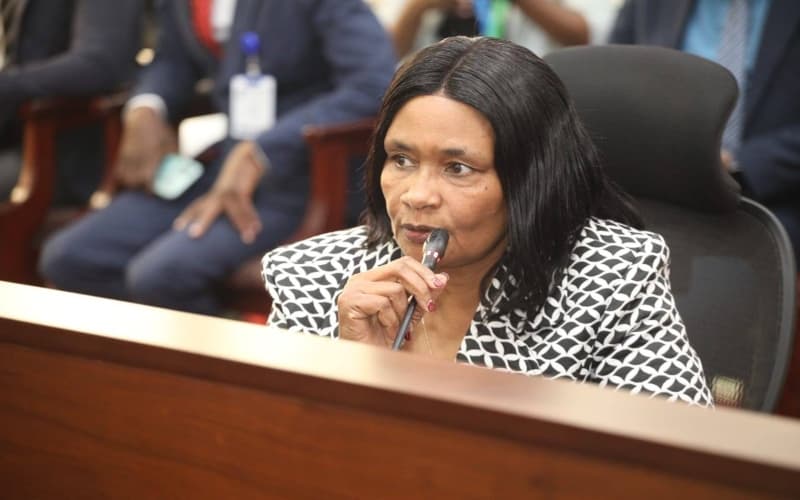We're loading the full news article for you. This includes the article content, images, author information, and related articles.
Over 400,000 teachers face uncertainty as their medical cover is set to transition to the new Social Health Authority by December, sparking a standoff with unions over consultation and benefit security.

NAIROBI – A significant policy shift is underway in Kenya's education sector, creating palpable tension between the Teachers Service Commission (TSC) and powerful teacher unions. By Tuesday, December 1, 2025, the medical insurance for over 400,000 public school teachers and their dependents is scheduled to migrate from the current provider, a consortium led by Minet Kenya Insurance Brokers, to the newly formed Social Health Authority (SHA). This move, affecting over a million beneficiaries in total, marks a pivotal change in the administration of public servant healthcare, aligning teachers with other civil servants under the Public Service Medical Fund.
The transition follows a directive from President William Ruto, who raised concerns about the cost-effectiveness and service quality of the existing scheme. According to the TSC, the current contract with Minet expires on November 30, 2025, necessitating the shift. In a statement on Monday, November 3, 2025, Head of Public Service Felix Koskei confirmed he had received an update report from a Joint Technical Committee comprising TSC and SHA representatives, signaling that preparations are in their final stages.
Despite assurances from the government, the move has been met with stiff resistance from the Kenya National Union of Teachers (KNUT) and the Kenya Union of Post-Primary Education Teachers (KUPPET). Union leaders accuse the TSC of a lack of meaningful consultation and transparency in the transition process. KUPPET Secretary-General Akelo Misori has voiced apprehension, stating the union was not adequately involved in the decision-making process and fears the new scheme may be a "politically-engineered" solution that overlooks critical gaps.
A primary concern for educators is the potential dilution of their benefits. The Minet scheme, despite complaints of service delays and limited hospital choices, provided a comprehensive package that included overseas treatment, group life insurance, and last expense covers. Unions have warned that these hard-won benefits, secured through collective bargaining agreements, could be lost in the transition to the untested SHA system. There is also significant anxiety regarding SHA's capacity to seamlessly onboard and manage such a large and geographically dispersed membership without disrupting access to healthcare.
The TSC has sought to allay these fears by outlining the proposed benefits under the SHA. According to Acting TSC CEO Evaleen Mitei, the new scheme will provide comprehensive inpatient and outpatient services, as well as specialized dental and optical care. The cover will also include annual checkups, emergency road and air ambulance services, overseas treatment, group life, and last expense benefits. The proposed structure covers the principal member, one spouse, and up to six dependents, a change from the Minet cover which allowed for up to eight children.
However, the transition is further complicated by the mandatory 2.75% deduction from gross salaries for the Social Health Insurance Fund (SHIF), a core component of the SHA. Teachers have raised concerns about potential double deductions and how this statutory contribution will integrate with their comprehensive medical cover. Furthermore, the Rural Private Hospitals Association of Kenya (RUPHA) has issued a warning, stating that the Social Health Insurance Act, in its current form, legally prohibits SHA from offering enhanced benefit packages like the one teachers currently enjoy, potentially setting the stage for legal challenges.
This migration is a key part of the government's broader health sector reforms under the Social Health Insurance Act of 2023, which aims to achieve Universal Health Coverage. The Act replaces the decades-old National Health Insurance Fund (NHIF) with a three-fund structure managed by the SHA.
The TSC maintains that it has held "fruitful engagements" with union leaders and school head associations in early October 2025 and is proceeding with member sensitization across the country. Yet, with the December 1 deadline fast approaching, the unions insist they have not seen the detailed transition report and will not endorse a move they believe could compromise their members' welfare. As the standoff continues, hundreds of thousands of Kenyan teachers are left watching anxiously, caught between their employer's directive and their unions' warnings about a potentially uncertain healthcare future.
Keep the conversation in one place—threads here stay linked to the story and in the forums.
Sign in to start a discussion
Start a conversation about this story and keep it linked here.
Other hot threads
E-sports and Gaming Community in Kenya
Active 9 months ago
The Role of Technology in Modern Agriculture (AgriTech)
Active 9 months ago
Popular Recreational Activities Across Counties
Active 9 months ago
Investing in Youth Sports Development Programs
Active 9 months ago